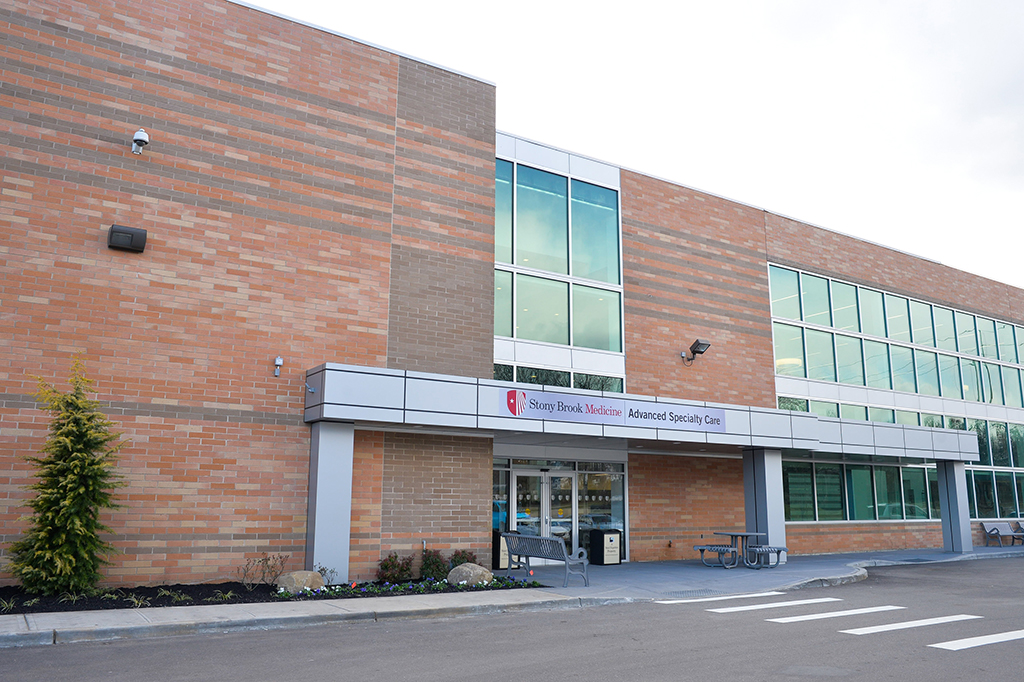The Department of Medicine is pleased to announce that Stony Brook Internists practice, Commack location, has been accredited by the NCQA (National Committee on Quality Assurances) as a PCMH (patient-centered medical home.) In March 2017, Stony Brook Medicine opened a multi-specialty center in Commack called “Advanced Specialty Care,” offering the residents of Long Island more choices and flexibility when looking for the highest quality medical care.
“Advanced Specialty Care is special; to us it means that in a single building, patients can expect to receive the highest level of expertise and compassionate care, that Stony Brook Medicine physicians are known to provide,” said Kenneth Kaushansky, MD, Senior Vice President for Health Sciences and Dean of the Renaissance School of Medicine. “If surgery or other advanced treatment is needed, our patients can transition to Stony Brook University Hospital without any disruption in the continuity of their care.”
One of the 30 medical specialties in Commack is the primary care/internal medicine division, which has now been bestowed the honor of accreditation by NCQA.
PCMH practices recognized by the NCQA exemplify a different kind of care, where improved coordinated services for patients and increased satisfaction among providers are just some the ingredients for an overall improved system.

According to PCHM Resource Center, the medical home encompasses five functions and attributes:
1. Comprehensive Care
The primary care medical home is accountable for meeting the large majority of each patient’s physical and mental health care needs, including prevention and wellness, acute care, and chronic care. Providing comprehensive care requires a team of care providers. This team might include physicians, advanced practice nurses, physician assistants, nurses, pharmacists, nutritionists, social workers, educators, and care coordinators. Although some medical home practices may bring together large and diverse teams of care providers to meet the needs of their patients, many others, including smaller practices, will build virtual teams linking themselves and their patients to providers and services in their communities.
2. Patient-Centered
The primary care medical home provides health care that is relationship-based with an orientation toward the whole person. Partnering with patients and their families requires understanding and respecting each patient’s unique needs, culture, values, and preferences. The medical home practice actively supports patients in learning to manage and organize their own care at the level the patient chooses. Recognizing that patients and families are core members of the care team, medical home practices ensure that they are fully informed partners in establishing care plans.
3. Coordinated Care
The primary care medical home coordinates care across all elements of the broader health care system, including specialty care, hospitals, home health care, and community services and supports. Such coordination is particularly critical during transitions between sites of care, such as when patients are being discharged from the hospital. Medical home practices also excel at building clear and open communication among patients and families, the medical home, and members of the broader care team.
4. Accessible Services
The primary care medical home delivers accessible services with shorter waiting times for urgent needs, enhanced in-person hours, around-the-clock telephone or electronic access to a member of the care team, and alternative methods of communication such as email and telephone care. The medical home practice is responsive to patients’ preferences regarding access.
5. Quality and Safety
The primary care medical home demonstrates a commitment to quality and quality improvement by ongoing engagement in activities such as using evidence-based medicine and clinical decision-support tools to guide shared decision making with patients and families, engaging in performance measurement and improvement, measuring and responding to patient experiences and patient satisfaction, and practicing population health management. Sharing robust quality and safety data and improvement activities publicly is also an important marker of a system-level commitment to quality.
The contributions of Susan Lee, Craig Bhoorasingh, Stephanie Jones, Joanna Perlstein, and their entire team made this effort a success, and we are thrilled to celebrate this achievement with them.
“The PCMH model of care has enhanced the practice of team based primary care allowing us to deliver the very best care for our patients at Stony Brook,” said Dr. Susan Lee. “I am very proud of how we have transformed both our Stony Brook Primary Care sites - Setauket and Commack.”
Congratulations to The Commack Office for being accredited by NCQA as a PCMH under the New York State standards!